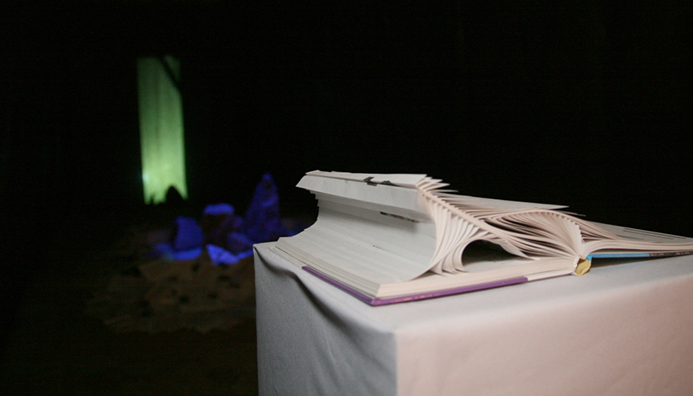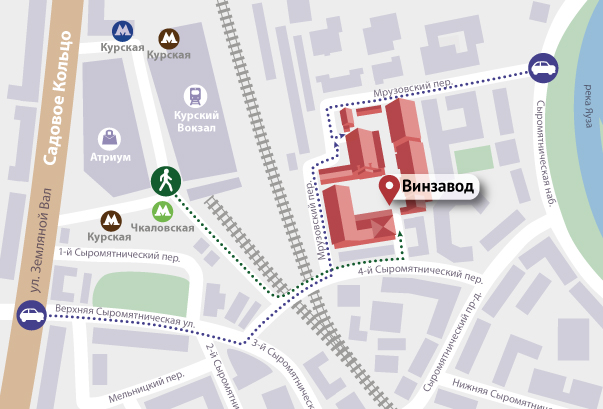The Exhibition of Sergey Ogurtsov includes several works of different meanings and media: natural materials (stones) rhyme with man-made projections, a «warm» substance (milk) is contrasted with ethereal artifacts of a «cold» culture (books).
This project, like most of the author’s works is the archaeology of a potential contemporary history. From criticism of the anthropomorphic rationalistic culture which Europe inherited from the Renaissance and the Enlightenment (series of objects from the" Empty houses of life«, installation «Crack mirror stage»), the artist goes to research alternative civilizations ,the «exhumation of the utopias in Europe after sunset». «Exodus» invites to imagine the culture which is not bound by be symbolic dimensions i.e. by the language we know . Logos for him is a universal shelter, a «common space» (connection with the others), and even with the History, that means that art has been never produced by the culture, it has been always beyond I the culture, and therefore beyond the human being.
In «Exodus» a non-human anthropology have a political dimension: biblical associations resonate with a contemporary post-Marxist interpretation of the term «outcome» as a rejection of the struggle for power in favour of the search for new spaces of freedom. However, the artist alludes, till the man will not go out of a symbolic culture, his language, and his «ego» (personal or collective),the freedom will remain a Mirage of the eternal wandering in a circle. The impossibility of such a transgression means that we need to find new languages, piercing symbolic patterns , «to inhabit the language», says the artis.t
According to the philosopher (return Foucault, he was there), the man has been invented recently and perhaps not for a long time. The man could be different. The reinvention of the human being according to Sergey Ogurtsov is the ultimate content of any revolution, and the desire to do it is an indispensable utopia of a new modernism..
---
"they say the
shadow of Canaan is there where people still write
(on walls or elsewhere)
where people sing songs and wash themselves with heart
Vladimir Lukichev
A desire for freedom is a passion for reality. Revolutionaries of a modern utopia believed that a free world was accessible from the top of a vertical power. Having reached the top in 1960s, they saw only a light haze: the all penetrating information of biopolitics could not control anymore the everyday life, but produced her subject.
For half a century, many digitals have not fought the Empire, they have tended to leave the power. The everyday wandering in the desert : the eternal come back and come out.. Without a leader, without a promise of Canaan: atopos instead of utopia — it is freedom of a general intelligence, in which a meta-narration of the real is replaced by mirages of local and personal stories, and the longing differs from the fatigue thanks to the memory of totalitarian dreams of the former passionaries.
The error of the nomad is in his naive allegiance to the Golden calf of a symbolic culture: his tent he created in the image and likeness of the house of being. The symbolic order of the language of the modern man, the modern art, and technique is the wall which none of the livings could have gone over. To forget the language, to sneak out of existence is to allow the ocean of reality which cannot be expressed to rinse finally the first and only face on the sand of the desert.
Sergey Ogurtsov






Anastasiya Shavlohova
This project, like most works of Sergey Ogurtsov, it is the archaeology of a possible contemporary history. In «Exodus» a demon anthropology has a political dimension: biblical associations resonate with the contemporary post-Marxist reading of the concept «outcome» as rejection of the struggle for the power in favour of the search for new spaces of liberty
For press